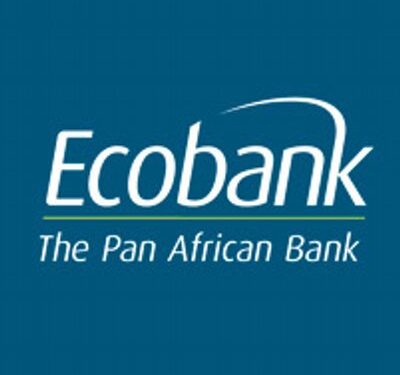Standard and Poor’s (S&P), a global rating agency, has upheld its ‘B-/B’ long- and short-term issuer credit ratings on Ecobank Nigeria, indicating the bank’s continued ability to meet its financial obligations amidst challenging economic conditions in the country.

Despite acknowledging the adverse business and economic climate in Nigeria, S&P stated that Ecobank Nigeria retains the capacity to fulfill its financial commitments. However, the agency expressed concerns that further depreciation of the naira could impact the bank’s regulatory capital adequacy ratio (CAR) due to its thin capital buffers.
“The high level of foreign currency loans — at 65 percent compared to a 55 percent estimate for the sector, following naira depreciation in June 2023–poses additional credit risks in Nigeria due to the scarcity of U.S. dollars.”
“Because of the weaker naira, we expect Ecobank Nigeria to adjust the level of collateral on its letters of credit. The bank increased its provisions 166 percent in third-quarter 2023 from third-quarter 2022 with a cost of risk ratio of 1.8 percent.
“Although we expect the bank to meet its capital requirements, a potential sharp depreciation of the naira could undermine its regulatory capital adequacy ratio.
“While the naira trades closer to a managed-float rather than being a fully free-floating currency, the exchange rate is now significantly more in line with market demand (at about N850-N950 per $1) and supply fundamentals, which remain weak.”
In response to these concerns, S&P revised the outlook on Ecobank Nigeria from stable to negative while affirming the ‘B-/B’ ratings. The agency highlighted the negative impact on banks, including Ecobank Nigeria, caused by foreign exchange shortages and the weakening naira.
S&P’s recent report observed that FX shortages would continue to affect key sectors of the Nigerian economy throughout 2024, despite efforts by the Central Bank of Nigeria (CBN) to address the FX backlog. The rating agency noted that the high level of foreign currency loans, especially after naira depreciation in June 2023, poses additional credit risks for Nigerian banks, including Ecobank Nigeria.
The report stated, “Because of the weaker naira, we expect Ecobank Nigeria to adjust the level of collateral on its letters of credit. Although we expect the bank to meet its capital requirements, a potential sharp depreciation of the naira could undermine its regulatory capital adequacy ratio.”
S&P emphasized that the ‘B-/B’ ratings for Ecobank Nigeria reflect its core status within the Ecobank group, underlining the bank’s integral role in its parent company’s future strategy. The agency derived the rating based on the ‘b’ group credit profile of the Ecobank group.
Looking ahead, S&P indicated that the outlook on Ecobank Nigeria could be revised to stable if the bank’s capitalization improves, and its regulatory capital buffers increase. Conversely, a negative rating action could occur if the bank breaches its minimum CAR due to higher-than-forecast credit losses, hindrance in U.S.-dollar-denominated funding and liquidity amid FX shortages, or if there is a broader negative rating action on Nigeria.
“We would take a negative rating action over the next 12 months if the bank breached its minimum CAR due to higher credit losses than we forecast, and if U.S.-dollar-denominated contingent sources of funding and liquidity were hindered amid FX shortages in Nigeria.
“We would also lower our rating on Ecobank Nigeria if we take a negative rating action on Nigeria.”















